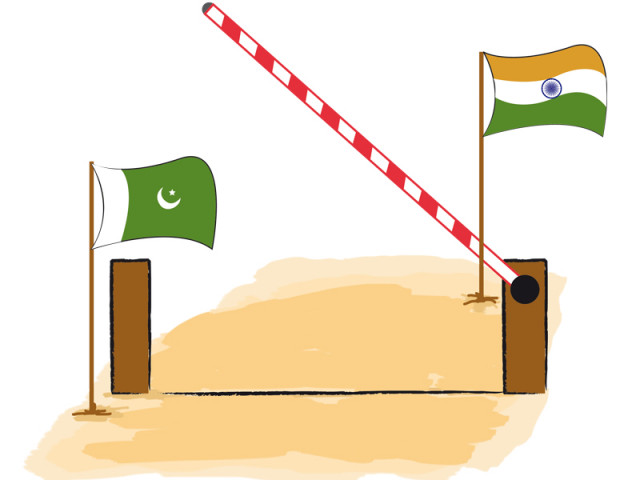Inching closer to free trade
There is no confirmation on whether trade in food and industrial goods will be liberalised between the two neighbours.

As in cricket, we must emphasise caution. The negotiations are not over till they are over. ILLUSTRATION: TALHA AHMED KHAN
But as in cricket, we must emphasise caution. The negotiations are not over till they are over. And while we are learning of some concessions on the Indian side, and a few on the Pakistani side, there is still no clarity on which sectors can expect to see trade between the two countries increase significantly. Miftah Ismail, the Board of Investment chairman, suggested that New Delhi would drop its restrictions against Pakistani textiles being exported to India, so at long last all the lawn exhibitions in Karachi and Lahore may soon have repeat performances in Mumbai and Delhi. Yet, as important as that sector is for Pakistan, there is no confirmation on whether trade in food and industrial goods will be liberalised between the two neighbours. The food trade is particularly important because it will help stabilise and lower prices in both countries and prevent the wild price fluctuations that occur every year.
Nonetheless, we are optimistic about progress in the trade talks this time around, particularly in the Nawaz Administration’s shrewd use of political manoeuvring. The decision to bypass the strong opposition from the automobile and pharmaceutical lobbies by acceding to their demands, for instance, allows the government to continue with the negotiations without the distraction of having to deal with those two groups. Having said that, even the Zardari Administration had displayed considerable political prowess during the negotiations but ultimately, was unsuccessful in getting the necessary agreements through. In short, while there is much room to hope, ‘it’s not over till the last ball’.
Published in The Express Tribune, March 16th, 2014.
Like Opinion & Editorial on Facebook, follow @ETOpEd on Twitter to receive all updates on all our daily pieces.














COMMENTS
Comments are moderated and generally will be posted if they are on-topic and not abusive.
For more information, please see our Comments FAQ